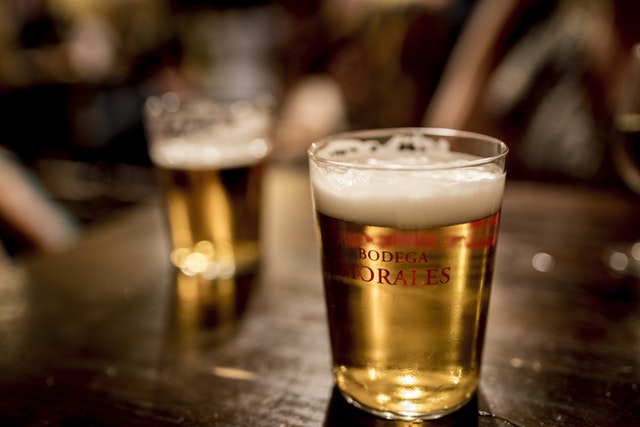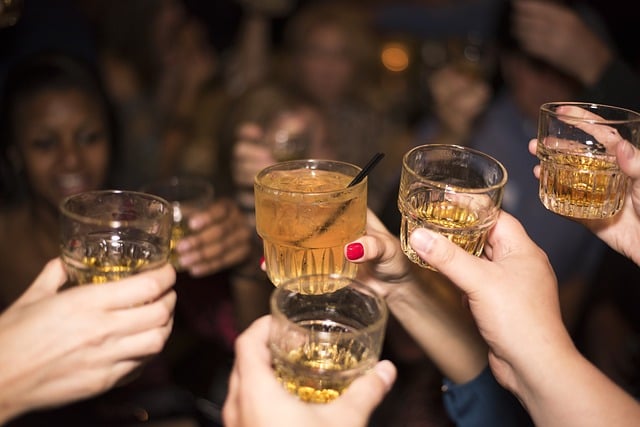Is Alcohol Really “Liquid Courage” for Language Learners?
It’s a familiar feeling for language learners the world over: fumbling over a simple interaction only to kick yourself later because you knew what to say but it just wouldn’t come out. All those hours of studying, frozen on the tip of your tongue. What if you sound silly or say something offensive by accident?
Many people employ the help of ‘liquid confidence’ to help overcome this most frustrating of stumbling blocks, but does drinking alcohol really help you speak a second language? A recent study published by the Journal of Psychopharmacology seems to suggest it does.

Photo via Pexels
Yeah, you read that right:
Researchers from the University of Liverpool, King’s College London, and Maastricht University looked into the relationship between alcohol consumption and verbal language performance in participants who have recently learned a second language.
While it is common to hear anecdotal accounts of the positive effects of ‘Dutch Courage’ from language learners, it also seems counter-intuitive that drinkinggetting drunk could improve communication. In fact, spending only a few minutes eavesdropping at a bar can leave you with the impression that booze makes speaking one language an impossible task, let alone two.

Photo via Pixabay
Conducting… hiccup!… Research
Participants were recorded taking part in a standardised conversation which was then rated by native speaking observers, as well as the participants themselves. So is this just another case of alcohol leading to overconfidence in one’s own abilities? It would seem not. Participants who had consumed alcohol were rated significantly higher by the observers, yet they did not rate themselves any higher after drinking.
Why then is a bottle of wine not included in every language course? Firstly, not everybody drinks alcohol and secondly, the implications of this study are limited, which is bad news for every lush out there. More alcohol does not directly equate to more second language fluency. The effect was only tested at low doses, just under a pint of 5% beer to be exact. While volunteers for more extensive testing are surely lining up around the block, it is unlikely that getting drunk will end up helping you communicate in a second language.
Can we extrapolate from this study then that countries where people drink a lot are more multilingual, and those who don’t drink are less? Probably not, as countries where alcohol is either prohibited or limited often demonstrate high levels of multilingualism, according to data from SwiftKey’s analysis of languages typed by users. Special mentions go to Indonesia, Israel, Egypt and Saudi Arabia. This same data showed that the least multilingual countries were Australia, USA, UK, and Canada, countries that are native English speaking but who also have more prominent drinking cultures.
Photo via MaxPixel
Another Round?
So what then is the key to these findings? It would appear that a slight increase in confidence and decrease in social inhibitions can help unlock language skills already learned. The less you second guess yourself, the more fluently you are able to speak. To an observer, there isn’t much difference between somebody struggling to find the right words and somebody over thinking how best to structure a sentence.
ICALTEFL describes accuracy as the ability to “create correct sentences using grammar and vocabulary”, whereas “fluency is the ability to produce language easily and smoothly”. It is important to balance both when teaching/learning a language yet, as many a teacher can tell you, a lack of confidence is a huge barrier to spoken fluency.
What we can take from this study is further proof that anxiety and embarrassment over speaking another language often conceal a person’s true ability, yet if you can find a way to loosen those lips then you are likely to find that native speakers can understand you better than you thought. Just don’t expect to speak perfect Greek after downing a bottle of Ouzo.
